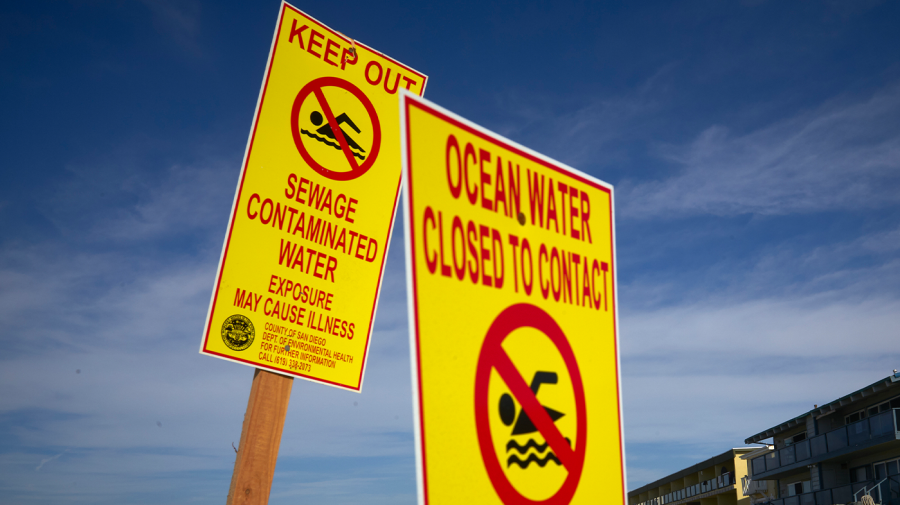Federal spending package triples funds aimed at fixing US-Mexico sewage crisis

- Oops!Something went wrong.Please try again later.
Congress tripled the funds it will devote this year to cleaning up a cross-border sewage crisis, in a small sliver of the $1.2 trillion spending bill approved at the eleventh hour this weekend.
The package, signed by President Biden on Saturday, includes a total of $156 million in the construction budget of the International Boundary and Water Commission (IBWC), a U.S.-Mexican entity that oversees shared water resources.
Those funds will be critical to the upgrade of the derelict South Bay International Wastewater Treatment Plant — a facility on the U.S. side of the border that treats some of Tijuana’s waste through an international treaty.
California Gov. Gavin Newsom (D) praised his state’s congressional delegation and local leaders for the inclusion of these funds in the package, when its terms were made public Thursday.
“The package announced today secures urgently needed federal funding — over $100 million more than last year — to help repair the federal South Bay plant and fix the sewage crisis that San Diego communities have dealt with for far too long,” Newsom said in a statement.
Residents of southern San Diego County have long been grappling with a transboundary pollution problem, the result of rapid urbanization and insufficient sewage treatment in the Tijuana metropolitan region of Mexico.
Raw wastewater regularly ends up on California’s southernmost beaches via both ocean plumes and the Tijuana River Watershed, which passes through Baja California before reentering its U.S. counterpart.
Public health researchers and officials recently identified a multifrontal public health crisis in the region as a mix of pathogens and chemicals make their way into the ground, soil and air.
Local leaders expressed some optimism earlier this year when Mexico began overhauling an obsolete facility that releases millions of gallons of sewage daily into the Pacific Ocean.
But progress has lagged on the U.S. side of the border, where necessary funding to upgrade the federally operated South Bay plant requires legislative approval.
Congress in 2020 allocated $300 million toward renovating the site, but officials warned that the plant requires $150 million more to function properly. Biden then asked lawmakers this past fall to authorize an additional $310 million.
While the $156.05 million included in the second fiscal 2024 spending package does not amount to that $310 million total, it still constitutes a $103 million addition to — or triple the amount of — the $53.03 million sum allocated last year.
“After years of steadfast advocacy from residents, servicemembers, and elected officials at every level, we’ve managed to get a real commitment from Washington to address this crisis,” said Rep. Scott Peters (D-Calif.), a main champion of the funding, in a Thursday statement.
“While this is not a ‘mission accomplished’ moment or the end of my work to ensure these hazardous pollutants no longer endanger San Diegans, this is enough money to keep us on track to break ground this year,” Peters added.
From there, he continued, efforts will focus on doubling the plant’s treatment capacity as officials work “to secure the remaining funds to realize sewage-free beaches and pollutant-free air.”
Rep. Juan Vargas (D-Calif.), a partner in this effort, likewise stressed that residents have for too long “been plagued by toxic pollution and environmental injustice.” Describing the funding as “a critical step,” he, too, emphasized that their “work is far from over.”
Sen. Alex Padilla (D-Calif.) similarly described a situation in which “toxic waste and raw sewage have flowed across the border,” creating hazards for communities and jeopardizing the training exercises of military personnel off the coast.
“We need an urgent, all-hands-on-deck effort to combat this pollution crisis,” Padilla said.
For the latest news, weather, sports, and streaming video, head to The Hill.

